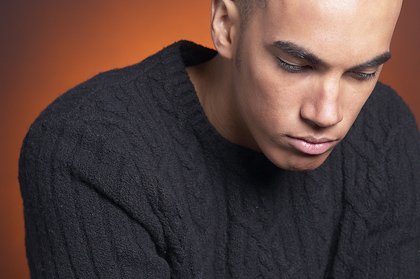Shhh! We shouldn’t be talking about it. Even in the 21st century, there is still a stigma attached to mental illness.
“Growing up in the African American community, the subject of mental illness was always taboo, kept behind closed doors,” said Washington resident Rudolph Pruden. “It’s viewed as family business, or it is swept under the rug altogether.”
Despite a flurry of television commercials advertising countless medications, the general public’s misunderstanding persists, notably in the black community because of the stigma associated with mental illness.
One out of four adults living in the United States and one out of 10 children struggle with mental health issues, according to officials at the National Alliance on Mental Illness (NAMI), one of the nation’s largest non-profit mental health organizations.
“Mental health issues are more normal than most people realize,” said NAMI executive director Sophie Clark. “The stigma surrounding mental health issues affects everyone, but it has a greater impact in communities of color.”
People in minority communities are less likely to access care for mental health issues because of the stigma surrounding depression and other mental illnesses, according to Clark. African Americans are 20 percent more likely than whites to report psychological distress but are more than two times less likely to receive antidepressants.
Regina Benjamin, the outgoing Surgeon General, found that the suicide rate among African Americans between the ages of 10 to 14 increased 233 percent from 1980 to 1995.
Suicide is the third highest cause of death in 15 to 24-year-old African American males after homicide and accidents, according to a 2011 report from the Centers for Disease Control and Prevention.
Major depression was found to be the single largest cause of disability in the world and, despite that fact, it is unrecognized, undiagnosed and untreated, mental health officials stated.
Within any one-year period, nearly 10 percent of the U.S. adult population will suffer from major depression, but only half will be diagnosed and about 30 percent will receive treatment.
Still, it remains a secret, a topic not discussed at dinner tables, in barbershops or in many black communities.
“From the recent White House conference on Mental Health to the Lifetime original movie, ‘Call me Crazy,’ the
nation is now taking a look at mental health like never before and what better time to break the stigma of mental illness within the African American community than through the platform of National Minority Mental Health Month [July],” said Rudolph Pruden, 70, who began battling mental health issues more than 30 years ago. “Part of breaking the stigma in the black community is promoting open dialogue and peer support.”
Pruden’s journey to find help eventually led him to Recovery International, a Chicago-based mental health support organization where he now serves as president of the Board of Directors.
Statistics compiled by NAMI show that African Americans are less likely to receive accurate diagnoses than their Caucasian counterparts. Also, cultural biases against mental health and health care professionals in general prevent many African Americans from accessing care due to prior experiences with historical misdiagnoses, inadequate treatment and a lack of cultural sensitivities.
African Americans tend to rely on family, religious and social communities for emotional support rather than turning to health care professionals, Dr. Kisha Davis, director of community outreach for the Casey Institute in Gaithersburg, Maryland pointed out. The health care providers they seek may not be aware of this important aspect of the person’s life.
African Americans also are more likely to seek help from their primary care doctors as opposed to accessing specialty care. The community is often at a socio-economic disadvantage in terms of accessing both medical and mental health care, according to Amanda Skowron, a clinical psychologist at the Casey Institute.
Skowron, a former psychologist at the University of Maryland and a member of the American Psychological Association in Northeast and the Association for Behavioral and Cognitive Therapies in New York said, “There definitely seems to be the feeling that mental health issues are talked about more and the entire issue is beginning to come out of the shadows. “
